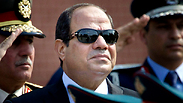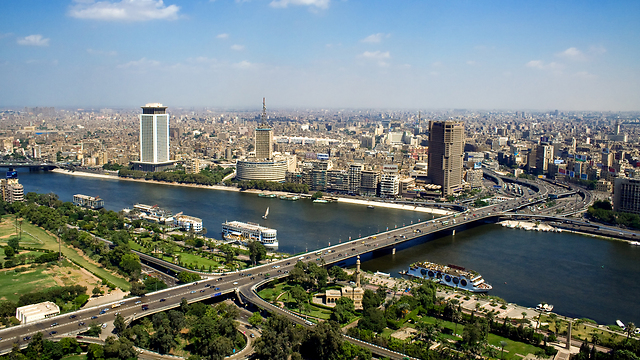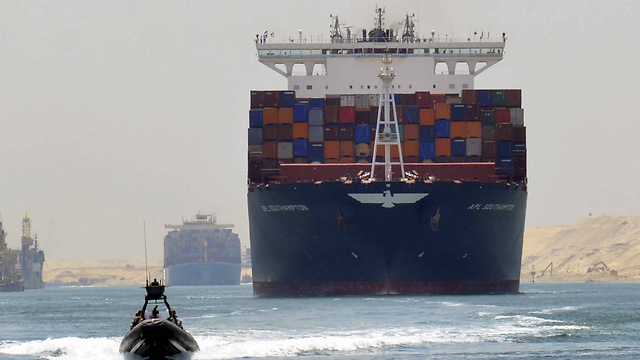
Israel to assist Egypt's fragile economy
After years of political turmoil, economic frustration is putting pressure on the al-Sisi administration to remedy its multi-faceted shortcomings; Israeli and American officials see assisting Egypt as a vital security interest.
Israel is preparing for a series of large-scale projects with Egypt after many years of separation in economic cooperation between the two countries.
The joint discussions on the projects reflect not only a rapprochement between the two countries, but also an urgent need for improved infrastructure in Egypt given the severe economic crisis that threatens the political stability of the country.
After the signing of the 1979 peace agreement, economic cooperation between the two countries saw a significant boost, which was gradually reduced after Egypt expressed little interest in its renewal.
More recently however, Egypt has raised interest in several projects with Israel—among them, desalinization of sea water to address concerns over water levels in the Nile River, which could lead to a dramatic shortage of water available for drinking and irrigation.
Israel is also preparing to provide cooperation and assistance to Egypt in the fields of solar energy, electricity production, agriculture, irrigation and gas. Additionally, Egypt is also examining the possibility of extending its cooperation to the tourism sector, as the billions invested in an expansion program in the Suez Canal have yet to yield the expected revenue.
One of the major factors providing the impetus to the new cooperative efforts stems from political factors which intimately affect Israel’s security.
Indeed, in talks recently held between senior Israeli and American officials, concerns were raised over the stability of the Egyptian regime, with the two allies agreeing that in the absence of any fundamental improvement in the Egyptian economy, social unrest could precipitate the pouring of Muslim Brotherhood forces into the streets to undermine the rule of General al-Sisi.
Similarly, heads of government in Egypt view the economic crisis as a major strategic threat to their country and, as such, they are placing emphasis in Egypt and abroad on efforts to increase revenue and expand infrastructure.
Egypt's economic crisis has been greatly exacerbated by the ongoing fighting raging in Sinai and Libya as well as its support to Saudi Arabia in Yemen. In addition, only a portion of the financial commitments from Saudi Arabia, the UAE and Kuwait have been received. Furthermore, the request to the IMF for $12 billion was granted on a series of conditions regarding a reduction of bureaucracy, increasing taxes and reducing subsidies—measures which, in the short term, could incite the Egyptian public.












